
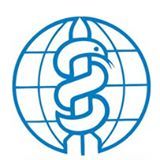
One of our supporters is IPPNW Germany ( International Phyisicians for the Prevention of Nuclear War / Physicians in Social Responsibility, Germany).
IPPNW Germany
■Dr Alex Rosen, Pediatrician/ Vice President of IPPNW Germany, explains in his article,
' Search for Strontium-90 in Deciduous Teeth', why the PDTN's work is so important.
Read it here
Our Supporters' Messages
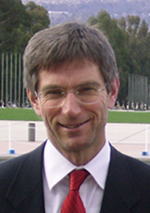 The 2011 Fukushima nuclear disaster is ongoing, and its consequences will continue over millenia. The 2011 Fukushima nuclear disaster is ongoing, and its consequences will continue over millenia. While evacuations and food restrictions considerably reduced population radiation exposures, the Japanese government continues to fail to adequately support, compensate, monitor and care for the health and wellbeing of the citizens put in harm’s way by the vested interests and failures of the “nuclear village”. The government accepts an ongoing level of additional radiation exposure of 20 millisievert, even for the most vulnerable - young children - far higher than has been accepted by any other government. Long-term monitoring of radiation exposure and its health impacts, in order to reduce and respond to these, is needed. This cannot be left to governments that have demonstrably failed in their first duty to protect their citizens. I commend the Preserving Deciduous Teeth Network and support its valuable work. February 21, 2016 - Dr Tilman Ruff, Physician/ IPPNW Co-President/ Founding Chair, ICAN/ Associate Professor of Melbourne University |
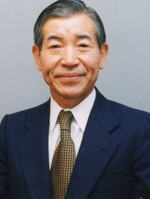 I highly commend the Preserving Deciduous Teeth Network and support its valuable and painstaking work. It is a precious model and a precedent for eventual international cooperation, badly needed to bring Fukushima Daiichi under control. I highly commend the Preserving Deciduous Teeth Network and support its valuable and painstaking work. It is a precious model and a precedent for eventual international cooperation, badly needed to bring Fukushima Daiichi under control.We need a new international system that obliges all the governments struck by a nuclear disaster to dedicate maximum efforts to solve the crisis and to mobilize human wisdom on the widest possible scope. Nuclear dictatorship continues to exercise its influence on a global scale.The restart of problematic nuclear reactors in Japan proves that top priority is given to the crisis of the management of electric companies at the expense of the crisis of Japan and the world. The lessons of Fukushima, namely, the shift of the priority from economy to life and true denuclearization, both civilian and military, among others, are being forgotten. To prevent the ongoing disaster from deteriorating further, I am pinning my hopes on the solidarity of awakened global citizens, as shown by the Preserving Deciduous Teeth Network. March 3, 2016 - Mitsuhei Murata, Former Japanese Ambassador to Switzerland |
 On commemorating the establishment of the 'Preserving Deciduous Teeth Network' On commemorating the establishment of the 'Preserving Deciduous Teeth Network'We are proud and pleased to be able to support - with the sale of our films - your important initiative that creates the network of preserving deciduous teeth of the children who are the victims of the Fukushima-Daiichi nuclear accident. We are deeply grateful to you for this opportunity. We were admiring friends of Vassili Nesterenko, a scientist of integrity, who devoted his life to the children who became victims of the nuclear industry in Belarus. He left us seven years ago. Your initiative in Japan revives courage. You give us the feeling that the firm resistance is continuing. Rigorous scientific approach is the only possible response to the ignorant and criminal arrogance that destroys life. It is an honour for us to become acquainted with you; it is a relief to the soul to know that people like you exist. March 26, 2016 - Emanuela Andreoli and Wladimir Tchertkoff, Directors of 'Le Sacrifice' and ’Controverses nucleaires' *Original message |
 Statement of support Statement of supportMy name is Alex Rosen. I am a pediatrician in Berlin, Germany and Vice-President of the German affiliate of IPPNW - the International Physicians for the Prevention of Nuclear War. German IPPNW supports the ''Preserving Deciduous Teeth Network (PDTN)“ because we believe that it represents a significant contribution to the assessment of health effects from the ongoing nuclear catastrophe in Japan. When multiple nuclear meltdowns occurred at the Fukushima Dai-ichi Nuclear Power Plant in 2011, large amounts of radioactive particles were released into the atmosphere. While iodine-131 and cesium-137 are relatively easy to detect, strontium-90 poses a much greater challenge in terms of laboratory testing. While this has to be acknowledged, it is not acceptable that strontium contamination is not measured by Japanese authorities. This is why we applaud the initiative of the independent physicians and scientists that led to the creation of the PDTN. As a pediatrician, I am especially concerned about the health of the smallest and most vulnerable human beings ? our children. The effects of radioactivity are much more pronounced in children than in adults and the risk of acquiring radiation-induced diseases such as leukemia or bone tumors from strontium-contamination are much higher. For this reason, I strongly support the efforts of the PDTN to collect and analyze deciduous teeth all over Japan, assess the level of strontium-contamination, publish the results and contribute valuable data and information for policy-makers who will have to act on this data to protect the population from harm. IPPNW Germany and myself wish the PDTN all the best and look forward to continued cooperation in the future. Dr. med. Alex Rosen Vice President IPPNW Germany |
 Dear colleagues in Japan, Dear colleagues in Japan, I wholeheartedly support the collection of baby teeth with the intention continue to measure them for Alpha and Beta radiation, incorporated by Japanese children, both from the Fukushima Prefecture and as comparison also from other regions in Japan, who sustained no radioactive contamination. April 24, 2016 - Andreas Nidecker, Doctor of Medicine/Radiologist/Professor Emeritus, University of Basel, Switzerland/Board Member, IPPNW Switzerland |
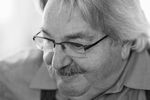 90Strontium was found worldwide in baby teeth since atmospheric atomic
bomb tests were performed from nuclear weapon states. It was clear for
the former US president John Fitzgerald Kennedy, that the health of children
in his country was affected and he enacted in August 1963 together with
UK and the Sowjet Union the so called Limited Test Ban Treaty (LTBT), a
ban for atomic bomb tests in the atmosphere, in outer space and under water.
The same enactement should be initiated for the siamese twinn of the atomic
bomb, the civile nuclear power plants nowadays. The work of PDTN is a powerfull
contribution to this goal analyzing 90Strontium in Japanese baby teeth.
In a japanese-swiss joint work 223 baby teeth got analyzed, an excellent
basis for further research in Japan. I support the excellent work oft he
PDNT-Group in Japan. The results of their work will be a historical issue
in the history of the so called era "Atoms for Peace". 90Strontium was found worldwide in baby teeth since atmospheric atomic
bomb tests were performed from nuclear weapon states. It was clear for
the former US president John Fitzgerald Kennedy, that the health of children
in his country was affected and he enacted in August 1963 together with
UK and the Sowjet Union the so called Limited Test Ban Treaty (LTBT), a
ban for atomic bomb tests in the atmosphere, in outer space and under water.
The same enactement should be initiated for the siamese twinn of the atomic
bomb, the civile nuclear power plants nowadays. The work of PDTN is a powerfull
contribution to this goal analyzing 90Strontium in Japanese baby teeth.
In a japanese-swiss joint work 223 baby teeth got analyzed, an excellent
basis for further research in Japan. I support the excellent work oft he
PDNT-Group in Japan. The results of their work will be a historical issue
in the history of the so called era "Atoms for Peace".August 15, 2016 - Martin Walter, Doctor of Medicine/Physician, Board Member/ IPPNW Switzerland |
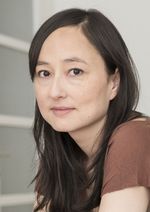 Statement of support My grandfather Shigeru Doi worked as a young doctor at the Hiroshima Red Cross Hospital during the Second World War. On August 6, 1945, just as the USA dropped the atomic bomb on Hiroshima, he had left his countryside home to embark on his weekly commute to work. He only returned home ten days later, but never spoke about his experiences. In my documentary film "The Day the Sun Fell“ I embark on a journey to my grandfather’s past. I started filming in April 2010, one year before the catastrophe of Fukushima happened. When I saw on Swiss tv, how the nuclear facilities exploded, I felt as if I was witnessing history repeating itself. But at that moment, I didn’t know yet, in what sense it was repeating. It was just a feeling. Later, during my intensive research and while spending a lot of time with my protagonists Dr. Shuntaro Hida, Chizuko Uchida and my grandmother and observing how society and politics were dealing with the new catastrophe I realized more and more, where the repetition was lying: What reminded me strongly of Hiroshima was the silence, that was kept about the true consequences of the radiation. Not only politics were and are still trying to suppress the truth; a considerable majority of citizens as well prefer to turn away from the urgent questions and escape to a supposedly normal life. Trying to forget and move on is a very human and well understandable trait. But the protagonists of my film taught me that it is important to take responsibility, each and every one of us. It is not only to blame the politicians but each single citizen should fight for a safer future, for the sake of our children and grandchildren. That’s why I wholeheartedly support the Preserving Deciduous Teeth Network as it does very important work by collecting data that will help evaluate the real situation of radiation in Japan. It is of utmost importance, that Japanese citizens who were affected by the Fukushima catastrophe will have data in the future to prove that they have been irradiated and as a consequence eventually became sick. Many victims of Hiroshima were lacking such proof and ended unrecognized and neglected by the authorities. At least this tragic aspect should not be repeated! June 4, 2017 -Aya Domenig, Director of "The Day the Sun Fell“ |
